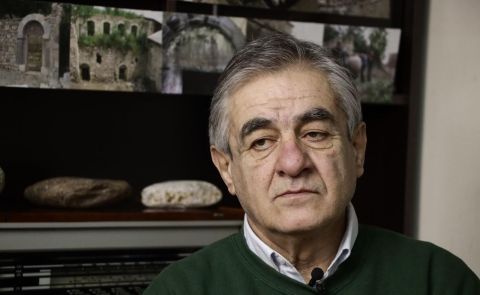
Eka Gigauri: Georgia's Foreign Agents Law Has Nothing to Do with Transparency
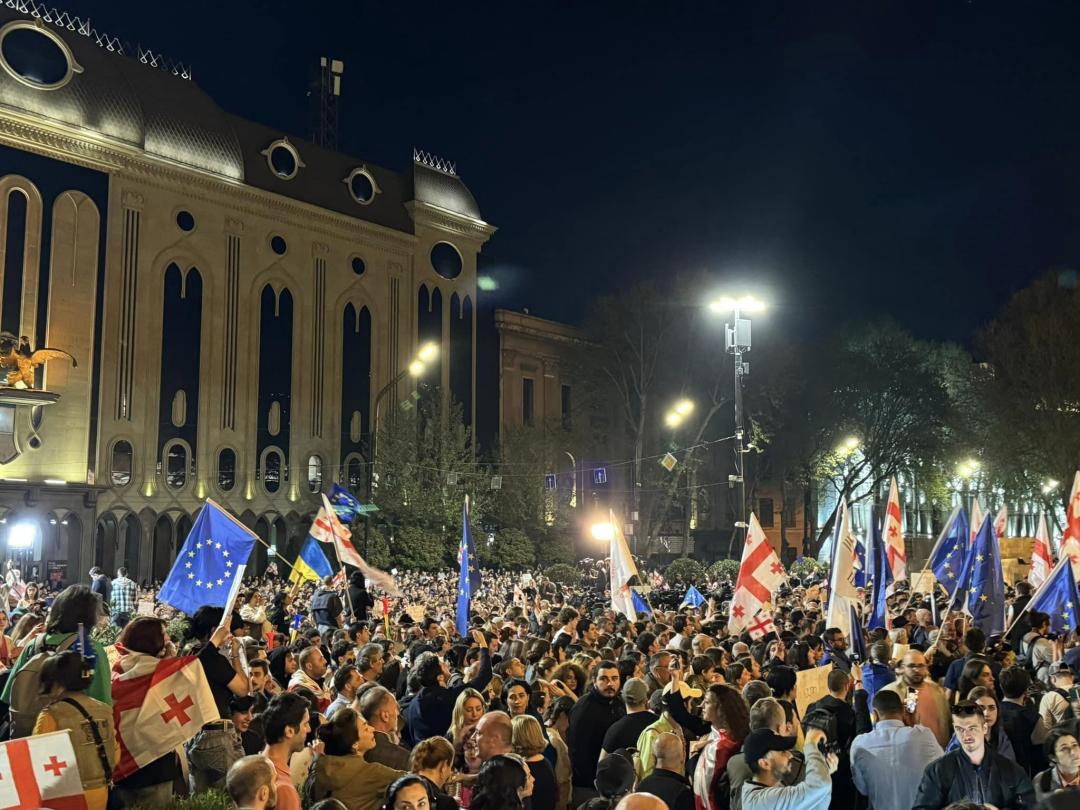
The streets of Tbilisi have seen a wave of protests against the "Foreign Agents Law" proposed by the ruling Georgian Dream party.
Georgia will hold parliamentary elections in October 2024. The Georgian Dream party has governed Georgia since 2012 and is seeking five more years. The party has taken a sharp turn to the right. In 2023, the party broke away from the Party of European Socialists, and Prime Minister Irakli Garibashvili appeared as a keynote speaker at the Conservative Political Action Conference (CPAC) in Budapest. This year's CPAC features his successor, Irakli Kobakhidze. Criticism abounds and the government is not taking it lying down.
The gloves are off. Last year, the head of the Georgian government's foreign relations committee, Nikoloz Samkharadze, described the prime minister's participation in CPAC as a diplomatic exercise, with Georgia seeking Budapest's support to gain EU candidate status. This year, Prime Minister Kobahidze joined his peers in Budapest - such as Geert Wilders (Party for Freedom, NL) and Santiago Abascal (Vox, Spain) - with a more deliberate ideological narrative, railing against "so-called liberals" and "LGBTQ propaganda" and vowing to defend Christian and family values.
The issue is not only ideological. If the "Foreign Agents Act" becomes law, any organization that receives more than 20% of its funding from foreign donors would have to bear the stigma of working for the "interests of a foreign power. This would force them to share sensitive information or face a fine of 25,000 GEL ($9,400). Critics say this looks like a move toward Russian practices. The end result would be that organizations like Reuters or Transparency International would have to accept the stigma of being a "foreign agent.
To understand how this feels, Caucasus Watch turned to Eka Gigauri. Ms. Gigauri is the Executive Director of Transparency International Georgia (TI) and has been a member of the organization's national chapter since 2010. She previously served as Deputy Chief of the Border Police, working specifically on anti-corruption measures, and held various positions in the Ministry of Internal Affairs and the Ministry of Foreign Affairs. The Foreign Agents Law is allegedly about transparency, and the director of Transparency International Georgia is likely to have an informed opinion on the matter.
You recently posted online pictures of your involvement in protests against the so-called Foreign Agents Law in the streets of Tbilisi. I wonder how the events in Brussels are related to the reaction in Tbilisi:
There was a vote in the European Parliament this week calling for the freezing of accession negotiations unless the law is withdrawn. We have had similar calls from the US Helsinki Commission.
Is this reaction in Europe and the United States somehow politically appealing to a domestic audience? Could we say that Georgia is as politically polarized as the rest of Europe?
No, I do not think this is about political polarization. It is partly about the willingness of Georgians to join the EU, which has an 83% consensus in Georgia. If we look at the events of the last few days, members of the European Parliament, foreign ministers of EU member states, the US Congress, the State Department, they all say the same thing: this is a Russian-style law, which, if adopted, would distance the country from the EU.
I have read the law and it has nothing to do with transparency. Just like the law passed in Russia in 2012. The only difference is that in Russia it only affected NGOs, whereas in our case it also affects media platforms.
Everyone knows where NGOs get their money from: Transparency fills out several funding applications; we pay all our taxes; all grant agreements are uploaded on the government website; we have records that can be checked and audited by the Ministry of Finance. This is not about transparency. This is about eliminating critical media and civil society. This is part of the Russian playbook that the government is following.
The context is also important. We have been called "foreign agents" for several years. If you compare the way Putin made the case for the 2012 foreign agent legislation in Russia and the way the Georgian government is making its case, there is significant overlap. The calls for registration and the legitimization of punishment are the same. Both the overall argument and the individual articles of these legislative documents are very similar.
By the way, members of the Georgian Dream Party have clearly stated that after the adoption of this bill, Transparency International and I personally will "disappear".
People are not polarized when it comes to willingness or desire to join the EU. Polls show that 83% support the goal of EU membership. Some of these people support the ruling party. And this is where a personalized smear campaign against civil society leaders, critical media, members of the European Parliament, leaders of international organizations becomes critical. The propaganda portrays them all as enemies of the people.
It's not polarization that brings people to the streets, but the realization that this government is taking this country in a different direction, towards Russia. It is about the foreign policy priorities of this government.
Last week, a Georgian prime minister opened the most important conservative political forum in Europe. Is the government "all in" on the electoral triumph of the far right in the European elections and President Trump in the U.S.? Would you say that the government believes that there is a certain kind of Europe and a certain kind of Washington that it can invest in and that ultimately the political tide is on its side?
Yes, I have that feeling. They are building good relations with Hungary in order to have Budapest on their side when they roll back democracy and shrink the civic space in Georgia.
At the same time, in recent weeks and months they have been meeting only with Chinese and Iranian officials. That's what's going on. It is not just about this legal framework. There is a bigger picture in Georgia now.
At the same time, Georgia is doing remarkably better on corruption than its neighbors in transparency rankings. Do you think this will change?
I can't comment on every aspect of transparency. But if you look specifically at Transparency International's annual Corruption Perception Index, it is true that Georgia is a leader in the region. Of course, you have to look at the region. The main thing is that we do not have petty corruption in Georgia. All the reforms that started after 2003 are still relevant. But we have a serious problem with elite and political corruption.
This is a country where state institutions are being captured by the oligarch Ivanishvili. That's what's happening. Apart from ministries, all independent institutions are headed by his political allies and have worked for him. If you look at public tenders, those who win the contracts are also political allies, often enriching themselves through corruption. So we have political and elite corruption. If you look at the State Department's latest human rights report, it confirms this view. That is what is happening here.
Is the lack of transparency endemic to a political system? Is it about the concentration of political and economic power, or is it simply a question of institutional arrangements? Do you need to change the law or the people?
It's typical of kleptocracies that they enact laws that ensure that the ruling party and elite remain the ruling party and elite. The institutions reinforce this picture. Everyone knows about corruption, but the institutions do not react. Critical media publishes, we investigate and publish, but nothing happens.
Look: the four judges sanctioned by the State Department {Mikheil Chinchaladze, Levan Murusidze, Irakli Shengelia and Valerian Tsertsvadze} were involved in abuse of power and corruption. That is significant.
Following your line of thought, there is apparently a Georgian law that provides Georgian citizens with a national shield against sanctions. If you are a Georgian citizen, it is a Georgian court that has to confirm the applicability of sanctions. Was this law introduced to protect certain people?
The law you are referring to was introduced to protect a former Prosecutor General {Otar Partskhaladze}. He was a family friend of the Ivanishvili family and a key person in settling corruption cases for Georgian businessmen. He also became a Russian citizen a few months ago. A State Department report linked him to Russian intelligence. He would have problems with his assets in Georgian banks, so the Central Bank of Georgia issued this regulatory clarification to save his money. That was the reason.
You mentioned personal threats to you and TI should this law be passed. We are a few months away from the October 2024 elections. Do you expect the government to move against you before the elections or wait until Georgians go to the polls first?
So the law will probably come into force by the end of August, beginning of September. To be clear, TI will not register as an agent working for the interests of another country. That is not going to happen. It is a question of dignity. I personally am not either.
Then the government will have to punish TI and me as "foreign agents" or working under the interests of a "foreign power". These foreign powers (US and EU) are supposed to invest these "dirty money" in Georgian politics. Therefore, TI and I personally, by implication, are beneficiaries of these "dirty money" to monitor the elections. This could discourage foreign observers from coming to Georgia, even though the country usually hosts one of the largest foreign observation missions.
So we are not going to play along. In any case, the government will have the opportunity to call us traitors, whether we cooperate or not.
So you are arguing that this law needs to be in place before the elections so that the government can discredit foreign election observers?
Yes, they want to discredit the "recipients of dirty foreign money", domestic and international, who invest in local politics. That is the propaganda value of this law. This has been planned for months.
In our case, we will not be able to observe the elections. There are three other monitoring groups that will also not be able to monitor the elections.
Critical media, again as foreign agents, will not be able to engage and will have a similar problem. So media monitoring will also be undermined. I do not know what kind of elections we will have without observers on the ground.
There has been an argument by some Georgian MPs that Western money is being used to draw Georgia into opening a "second front", instrumentalizing Georgia in the war in Ukraine. Does this view have a broad constituency? Does this argument resonate with anyone?
I can't put a number on the number of people who are convinced, but those who watch pro-government media are likely to find this narrative credible. The question they often ask is: "Who is Georgia's friend, Russia or the West? Then the question of neutrality is raised and there is talk of non-alignment.
If you ask average citizens where they would go on vacation, to a hospital, or send their children to study, they will say "Europe" or the United States, not Russia. If you ask them if they want a war with Russia, most do not want a war with Russia. If you point out that no one is asking them to play a role in the war, of course they are less reluctant to commit themselves to the West. So, yes, this is how it is played.
If I remember correctly, 2012 was the only peaceful transfer of power in Georgia, through the ballot box. In your opinion, is Georgia a country where the government can lose elections? It is clear that a government can win them; it is less clear that it can lose them. What do you think?
I think it is possible. The overthrow of every government has had a popular base, but when there are people who say 'enough is enough,' change is possible. But we've never had elections with a free and fair landscape. Governments abuse administrative resources, intelligence services influence the electoral game, and there are personal threats and mass intimidation.
After 2012, we have seen some competitive elections, such as local and presidential elections. However, the problem lies in the government's abuse of state resources, which leads to violent elections. Critical media and civil society play a crucial role in connecting the public with reality and prompting them to reflect on their choices.
I cannot compare Georgia with Russia or Belarus. But with the government in its third term, political competition is becoming very personal. The ruling party uses the prosecutor's office to go after certain people, the police to arrest certain journalists, the secret service to blackmail certain people. People are being abused and threatened. When elections come, it's a zero-sum game, anger is growing, and it's impossible to think that life will continue "as usual" after the elections. And as soon as something changes, there is a popular demand for retribution against the previous guys. All this is problematic. As long as we have critical media, we have a chance to change things. Without it, it is very difficult.
Georgia's president, Salome Zourabichvili, has said she is prepared to veto the bill. How realistic is that political prospect?
She said she would veto it. And she is the most trusted politician in Georgia at the moment. But the ruling party has enough parliamentary power to override her veto, so even if she does everything, they can pass the bill. They have the power and they will use it.
Interview conducted by Ilya Roubanis
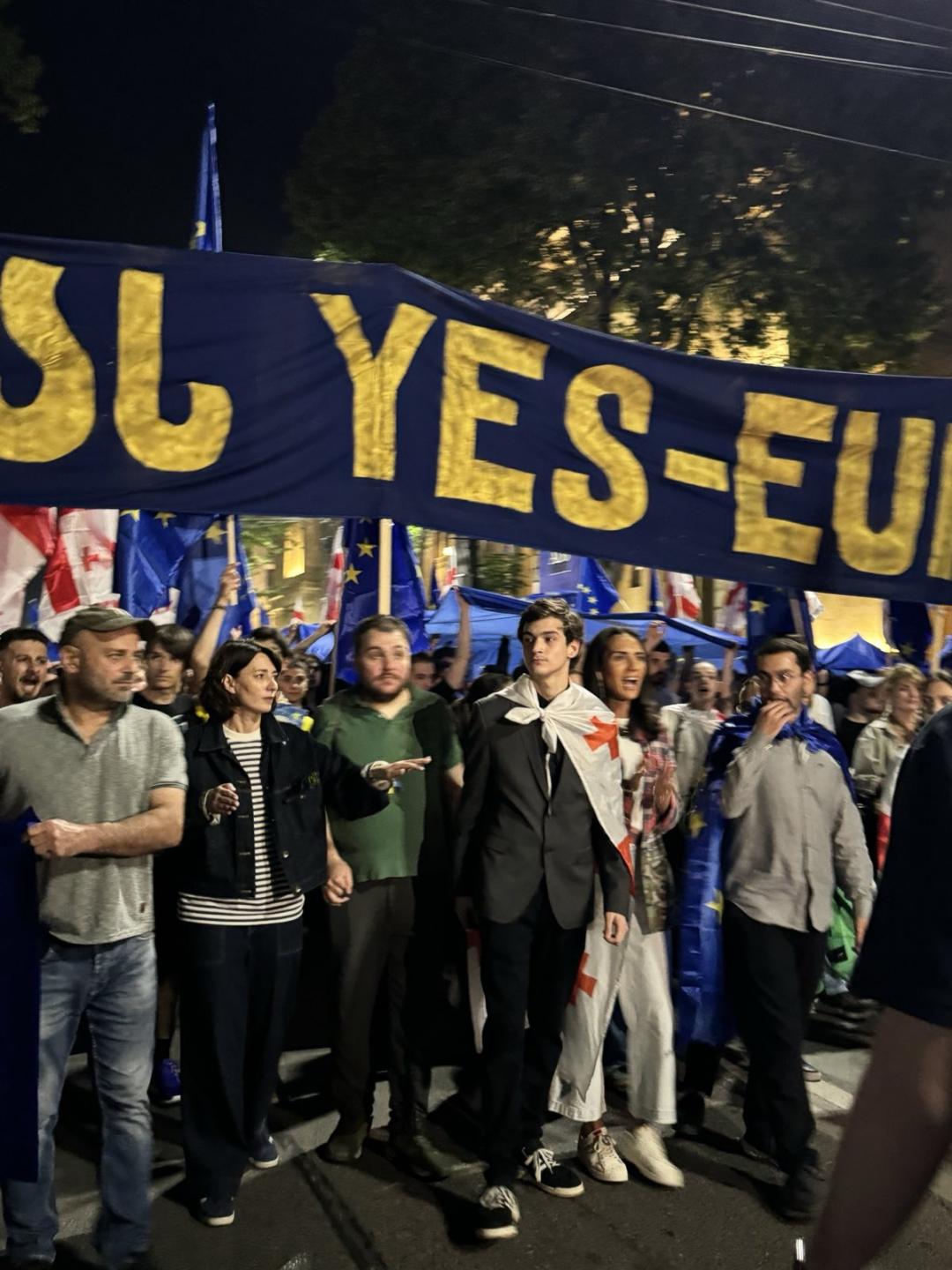
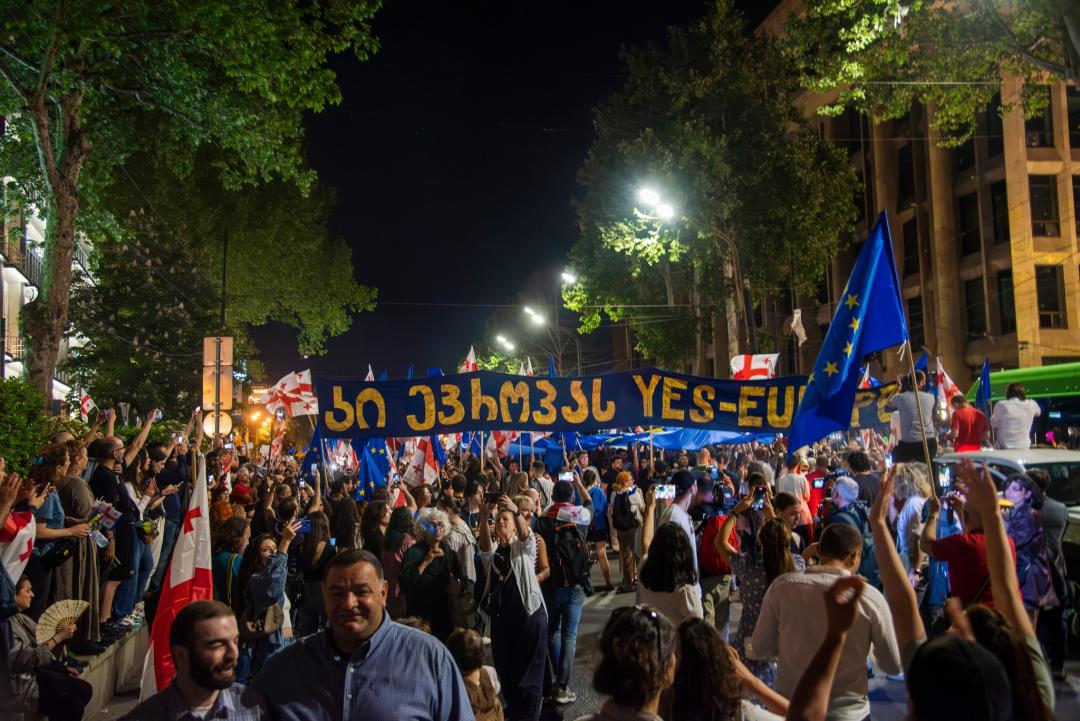
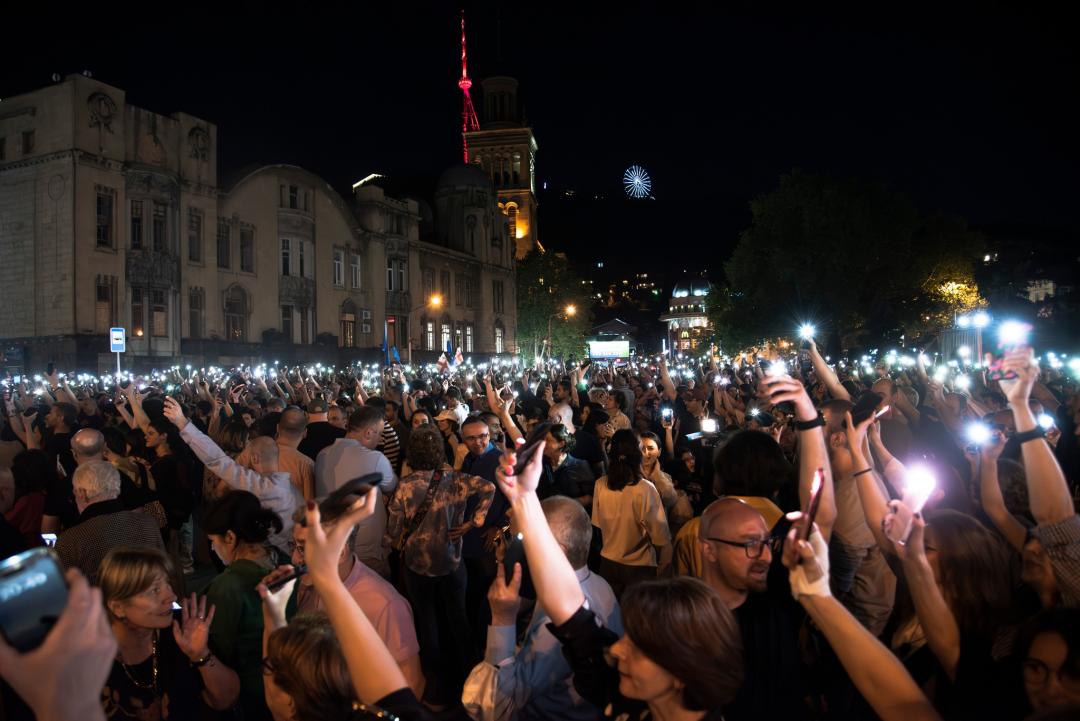
See Also


Irina Mamulashvili: Electoral Interference is a Playbook, not a Recipe

Giorgi Gakharia: The EU Should Engage Georgia Despite Its Democratic Backsliding

Peace or Capitulation? Shahverdyan on Armenia-Azerbaijan Agreement and the Nagorno-Karabakh Crisis

Ali Mousavi Khalkhali: Iran Will Avoid Conflict in the Caucasus

